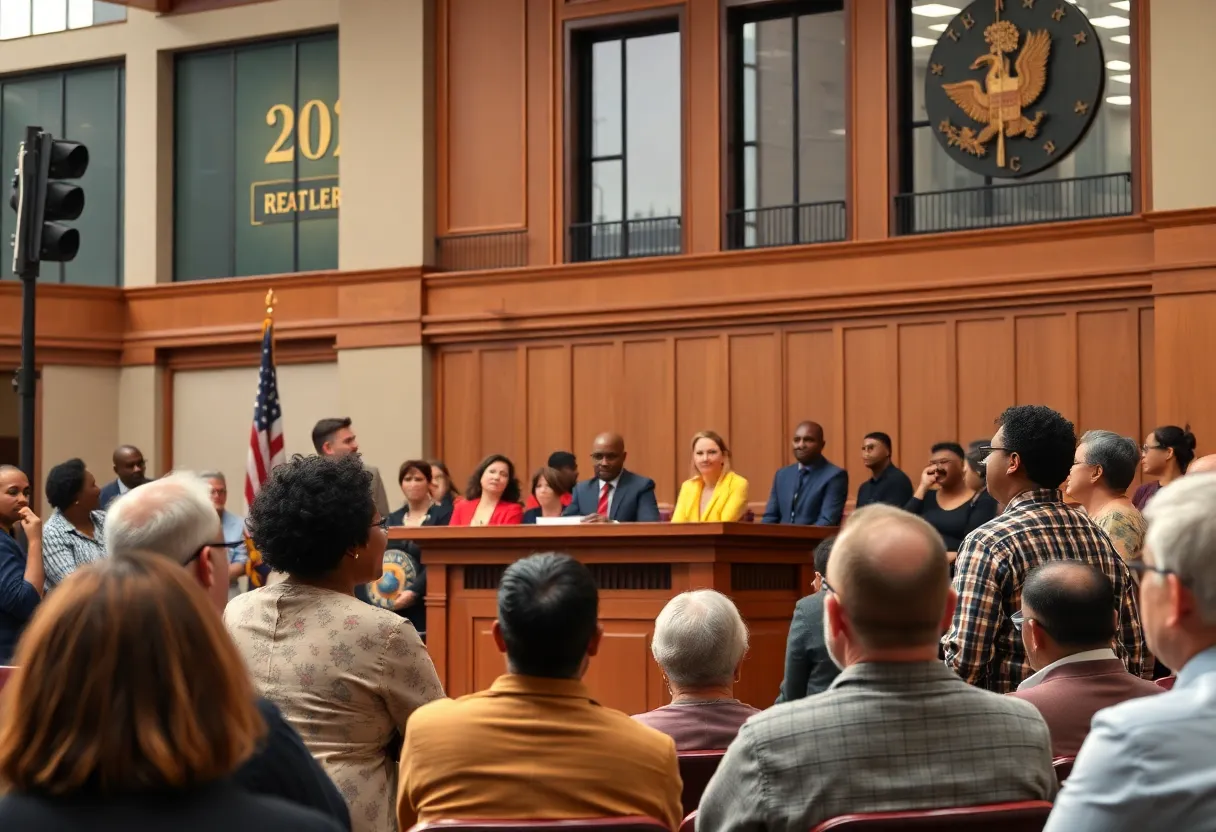News Summary
The Boston mayoral race is intensifying as Michelle Wu faces Josh Kraft. Both candidates debate public safety and housing policies, with Wu claiming progress in crime reduction and Kraft challenging her record. The election is set for November, with significant voter support currently leaning towards Wu.
Boston Mayoral Race Heats Up: Michelle Wu and Josh Kraft Clash Over Public Safety and Housing Policies
The Boston mayoral race is intensifying as incumbent Democrat Michelle Wu faces a formidable challenge from nonprofit executive Josh Kraft.
Both candidates are engaging in pointed personal and policy debates, with a particular focus on issues of public safety and housing affordability. Wu boldly claims significant progress in reducing violent crime during her tenure, citing a drop in homicides from 56 in 2020 to 24 in 2024. However, Kraft contests Wu’s assertions, highlighting various specific cases of violence and criticizing her narrative in a recent Substack post titled “Michelle Wu’s Not-So-True Crime Story.”
Public Safety Under Scrutiny
Despite Wu’s confidence in her public safety record, experts are split on defining the “safest city” and have noted that Boston’s homicide rates remain higher than several other cities, including San Diego, San Jose, and El Paso in 2023. Boston has been identified among the safer cities in America largely due to strict gun laws and robust healthcare systems.
Kraft’s criticism of Wu’s claims underscores his argument that public safety remains a pressing issue. The discrepancy in viewpoints presents a significant pillar in the ongoing campaign.
Housing Production and Affordability
A major issue in the mayoral race is the sharp decline in housing production in Boston, with only 2,358 new units starting construction in 2023—the lowest annual figure since 2011. Kraft attributes this downturn to Wu’s affordable housing policies, which require developers to allocate a portion of market-rate units as affordable housing.
Wu, on the other hand, argues that the slowdown in housing production is also influenced by macroeconomic factors, including rising costs for construction materials and increasing interest rates. To address housing affordability, Wu’s administration has initiated a $110 million Housing Accelerator fund aimed at stimulating development targeted toward lower- and middle-income families.
Cost Controversies Around White Stadium Renovation
The renovation of White Stadium in Franklin Park—a project intended to serve Boston Public Schools and host a new professional women’s soccer team—has also become a contentious topic in the campaign. Wu’s estimates for the renovation costs have escalated from $50 million to over $90 million, while Kraft claims the cost could soar to around $170 million, a figure that Wu disputes as a worst-case scenario.
Kraft’s Background and Campaign Attacks
Kraft has faced criticism regarding his relatively recent move to Boston, having registered to vote only in the fall of 2023. Wu has accused him of lacking a deep understanding of the city’s needs due to his prior residency outside Boston. While Kraft’s campaign emphasizes his voting participation in recent elections, it also highlights the condo he purchased in the North End, which is linked to an LLC associated with his father’s business—a connection that Wu has leveraged in her critiques.
The mayoral election is set for November 4, with a preliminary election slated for September 9. According to an Emerson College poll, Wu currently leads with 43% of voter support, compared to Kraft’s 29%.
Transportation and Community Issues
Housing affordability remains a critical issue for voters, with both candidates presenting their proposals to tackle the problem. Kraft remains vocally critical of Wu’s management of transportation matters, especially concerning bike and bus lanes that have received mixed feedback from the community. Furthermore, Wu’s handling of health crises in areas like Mass. and Cass, which are heavily impacted by homelessness and substance abuse, has also drawn increasing scrutiny.
As the race progresses, Kraft is emphasizing his community service experience while offering a counter-narrative to Wu’s policies, setting the stage for a highly contested and dynamic election period in Boston.
Deeper Dive: News & Info About This Topic
HERE Resources
Trump Nominates Joshua Dunlap to U.S. Court of Appeals
Boston City Councilor Resigns Amid Corruption Charges
Investigation Clears Boston Economic Chief of Wrongdoing
Boston Faces Sharp Decline in Housing Construction
Boston City Councilor Tania Fernandes Anderson Resigns Amid Corruption Charges
Boston Health Official Admits Failures in Drug Crisis Response
Boston’s 2023 Election Cycle Heats Up
Boston Prepares for Rainy Weekend with Indoor Activities
Mayor Wu Strengthens Political Ties with Michlewitz
Boston City Councilor Tania Fernandes Anderson Resigns Amid Scandal
Additional Resources
- Boston.com: Wu and Kraft Issues Divide
- Wikipedia: 2025 Boston Mayoral Election
- Boston Globe: Wu-Kraft Fact Check
- Google Search: Boston mayor race 2025
- NBC Boston: Wu-Kraft Poll Analysis
- Encyclopedia Britannica: Mayor
- MassLive: Big Issues in Boston’s Mayoral Race
- Google News: Boston Mayoral Election

Author: STAFF HERE BOSTON WRITER
The BOSTON STAFF WRITER represents the experienced team at HEREBoston.com, your go-to source for actionable local news and information in Boston, Suffolk County, and beyond. Specializing in "news you can use," we cover essential topics like product reviews for personal and business needs, local business directories, politics, real estate trends, neighborhood insights, and state news affecting the area—with deep expertise drawn from years of dedicated reporting and strong community input, including local press releases and business updates. We deliver top reporting on high-value events such as Boston Marathon, Head of the Charles Regatta, and Boston Harborfest. Our coverage extends to key organizations like the Greater Boston Chamber of Commerce and Associated Industries of Massachusetts, plus leading businesses in finance, biotech, and insurance that power the local economy such as Fidelity Investments, Biogen, and Liberty Mutual Insurance. As part of the broader HERE network, we provide comprehensive, credible insights into Massachusetts's dynamic landscape.





